Why you should rent camping gear this year (and when to buy)
Should you rent camping gear, or is it best to own it? We look at the pros and cons of both
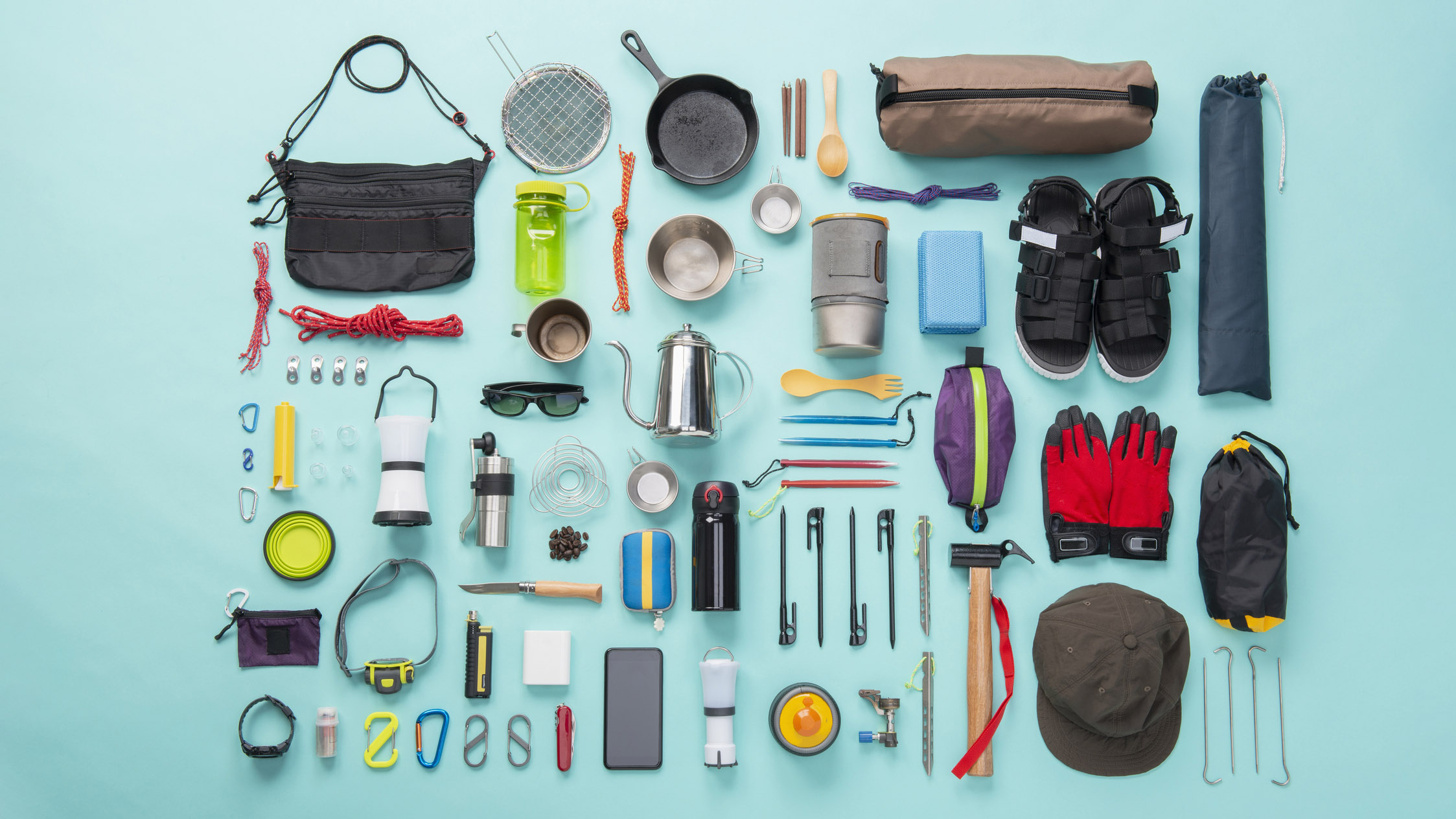
All the latest inspiration, tips and guides to help you plan your next Advnture!
You are now subscribed
Your newsletter sign-up was successful
For a long time, camping has been largely in the domain of those who can afford to buy expensive camping gear, know how to use it and have a place to store it, but all of that might be changing with emerging new initiatives for renting camping gear. If you’re exploring National Parks, National Forests or heading out into the backcountry for some dispersed camping this year, you’re going to need items like a tent, sleeping bag, sleeping pad and camping stove, all of which can rack up quite a bill, so you might want to rent camping gear instead.
Like anything, there are pros and cons to both renting and buying camping gear, so in this article, we guide you through some advantages of renting camping gear, plus when it makes more sense to buy it.
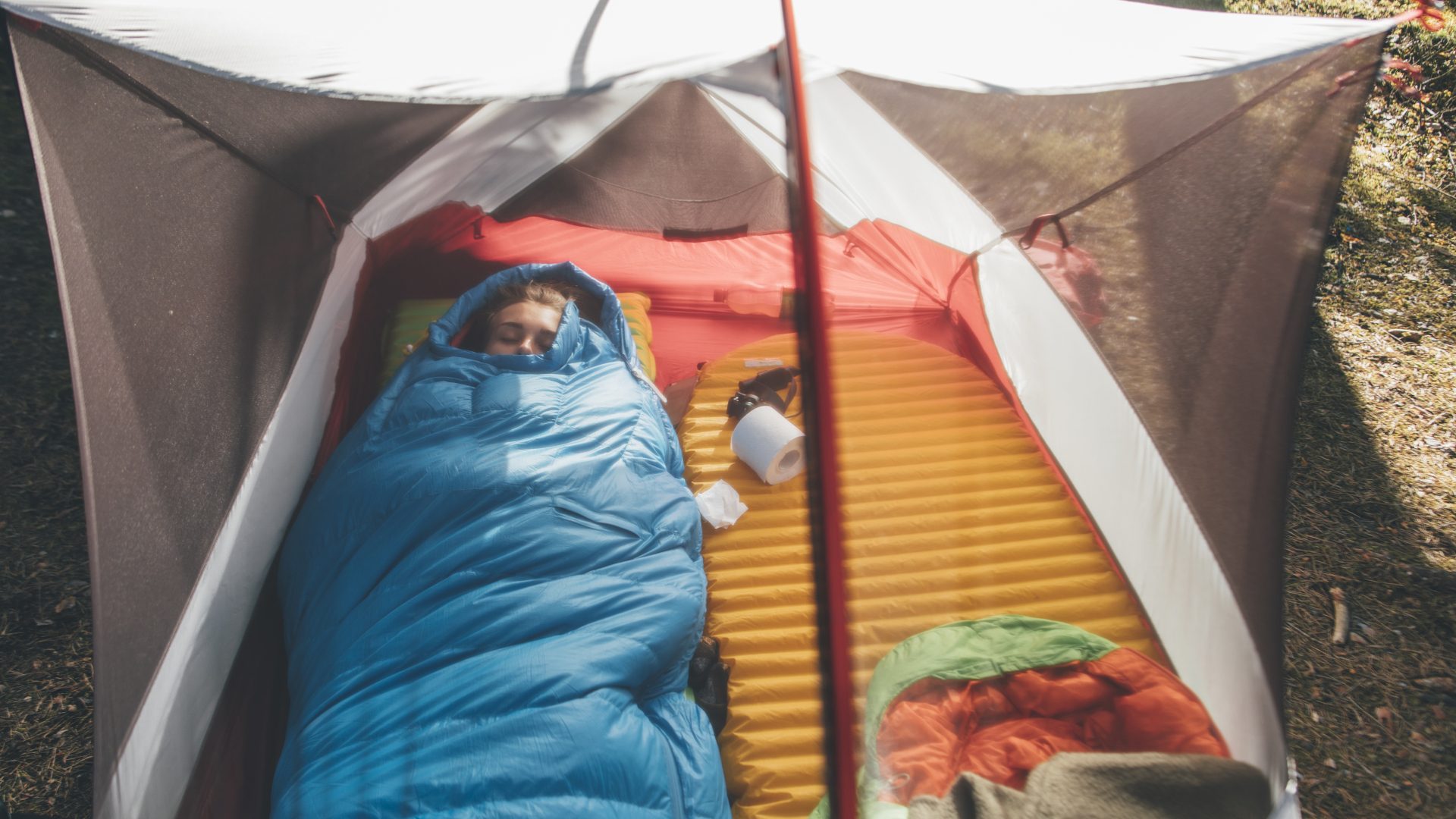
1. You could save money
At first glance, renting camping gear definitely looks cheaper than buying it, and sometimes it is. For example, REI’s Co-op Base Camp 6 Tent will run you about $549 to buy new, but you can rent it from them for a long weekend for $71.84, which saves you quite a bit of money for gas, entrance fees and ice creams.
Rentals make good financial sense for any item that you are only going to use once or twice – let’s say you usually go backpacking solo but just this once, you're heading out with the kids and need that family tent. It also makes sense for any gear that your younger kids might outgrow, like children’s sleeping bags and camping chairs.
That said, for any items that you’re going to use frequently, it will still make more sense to buy as you’ll spend less in the long run, and you can potentially resell your gear when you no longer need it, recovering some of your costs. If you’re looking to save on purchasing gear, check out our cheap dispersed camping gear setup for under $300.
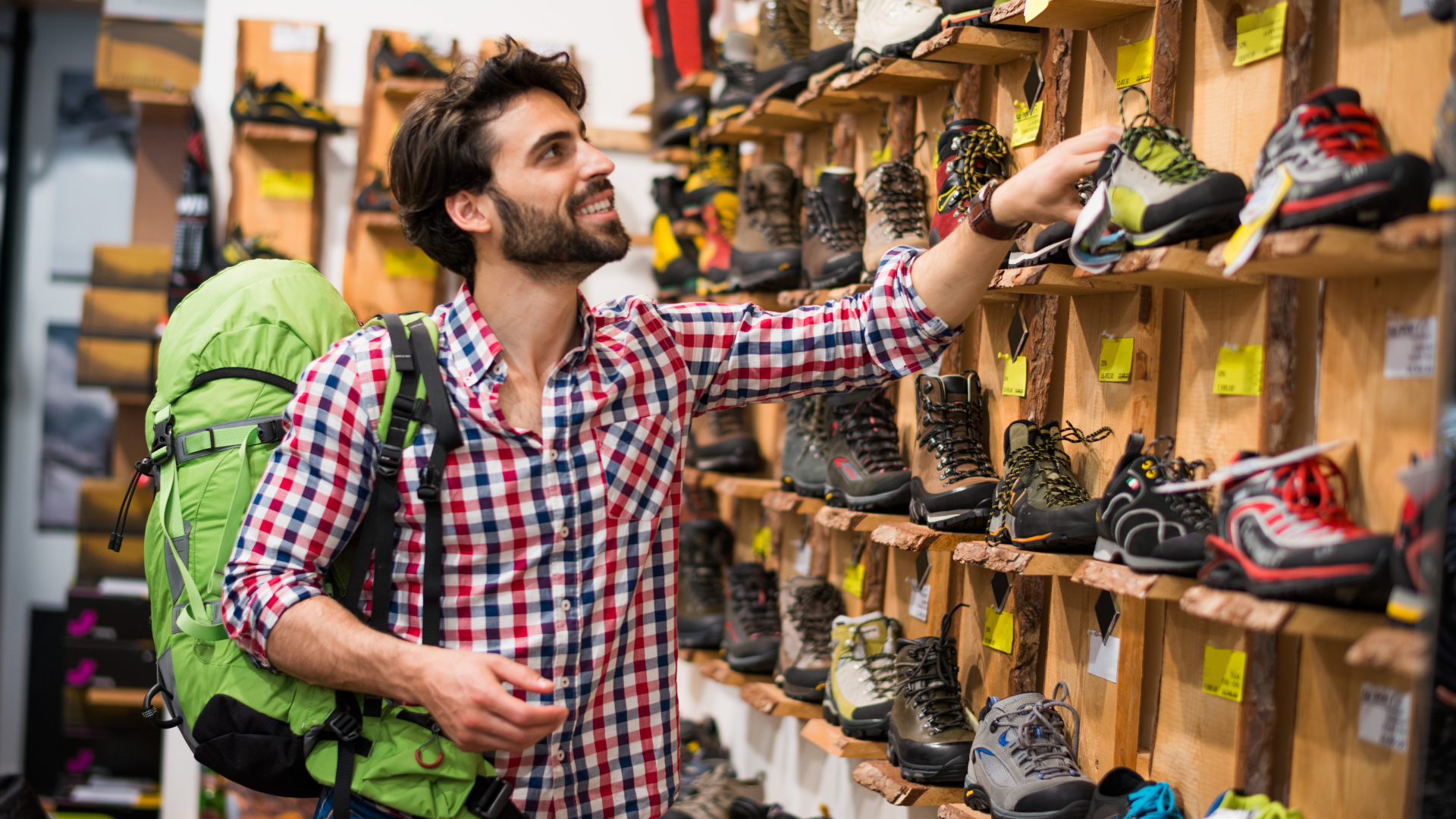
2. Try before you buy
When you first get into any sport, it can be easy to get over excited and end up dropping a wad of cash on a shiny new item that it turns out you’ll never actually use. If you’re new to camping and still learning the ropes on all the different types of tents and shapes of sleeping bags, renting camping gear can be a great way to try out different models and test different brands to figure out what you like before you commit to owning it.
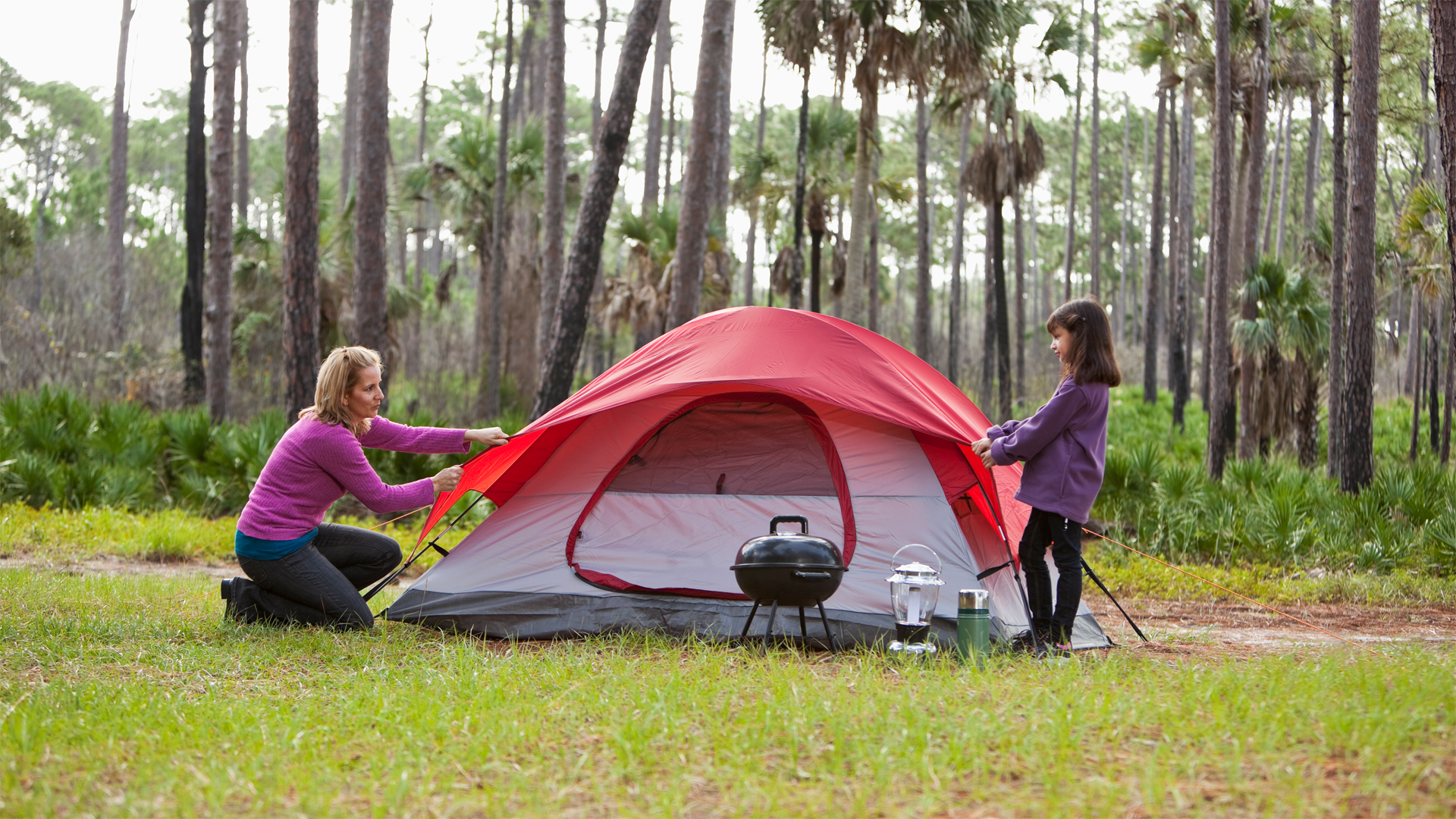
3. Reduce your carbon footprint
Clearly, everyone buying less products reduces overall production, which is better for our air, water supply and land and ultimately means less unwanted or broken gear ending up in landfills. In 2019, the European Rental Association that renting equipment can lead to significant reductions in carbon emissions of up to 50%, so if you’re looking for ways to be kinder to the planet, start here.
All the latest inspiration, tips and guides to help you plan your next Advnture!

4. Stress-free packing and unpacking
When you rent gear, the shop will pack it all up for you and ship it over in time for your trip. For car camping, you’ve got enough on your hands as it is with meal preparation, trip planning and navigation, so companies like Xscape Pod put together camping pods containing everything you need. It really helps when you can just load your gear into the trunk of your car and hit the road. Plus, when you’re done with it, you just ship it back or drop it off and they take care of cleaning it, meaning no tired Sunday evenings spend airing out your tent and wiping it down when all you want to do is flop on the couch and recover.
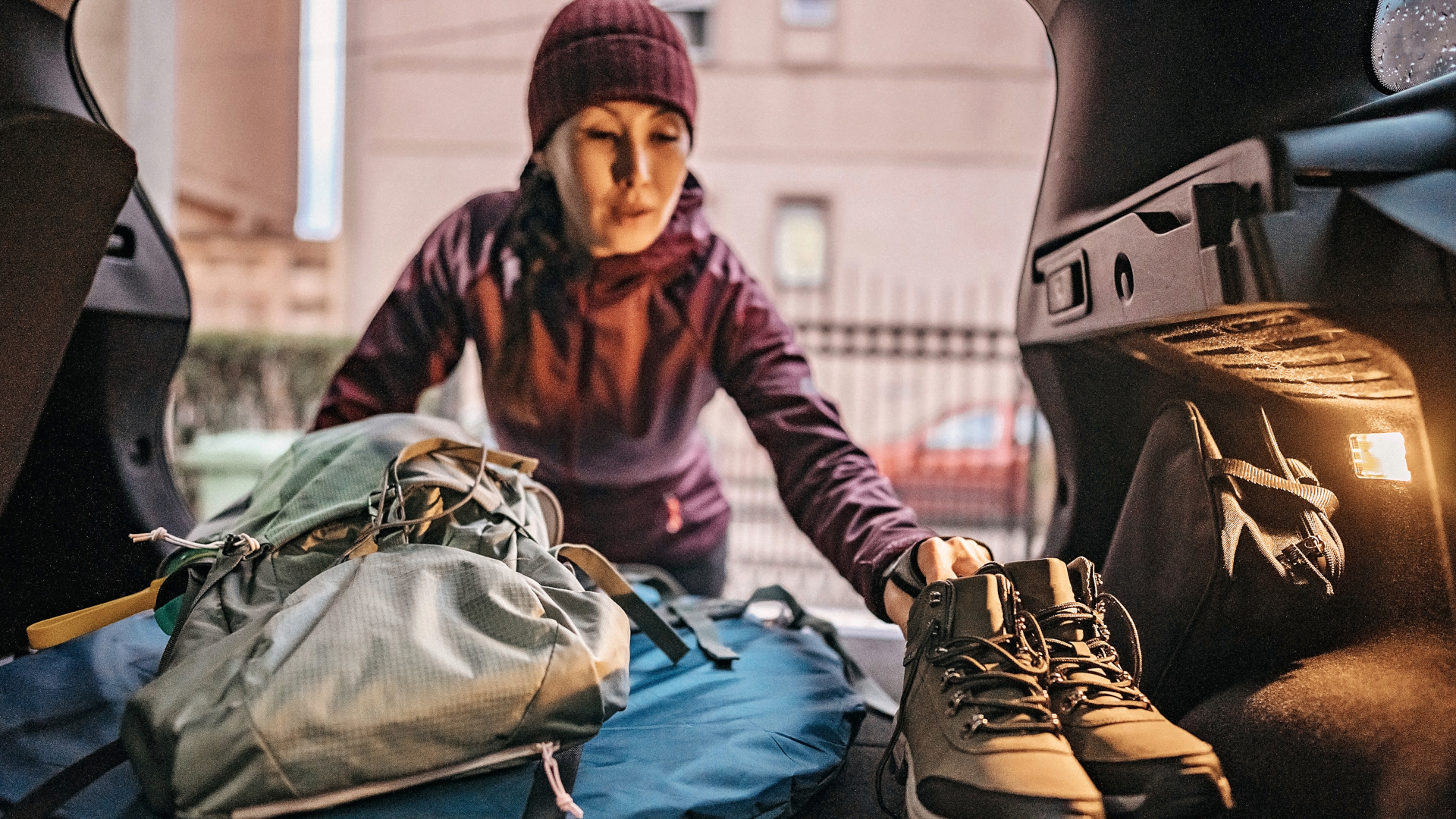
5. No need for storage
Tents, sleeping bags and pads are bulky and not everyone has a garage or big closet with room for storage, but when you don’t own your gear, you don’t have to worry about finding room for it when you’re not using it (which, let’s be honest, it the majority of the time).
6. You don’t have to fly with it
If you’re traveling by air with your own gear to your destination, you’ll want to read our tips on flying with camping gear, but with rentals, you can sidestep this puzzle altogether and have your rental company ship your gear to wherever you’re going and avoid dealing with extra stress at security. Then all you have to worry about is your outfit changes and making sure all your liquids fit in impossibly small bottles!
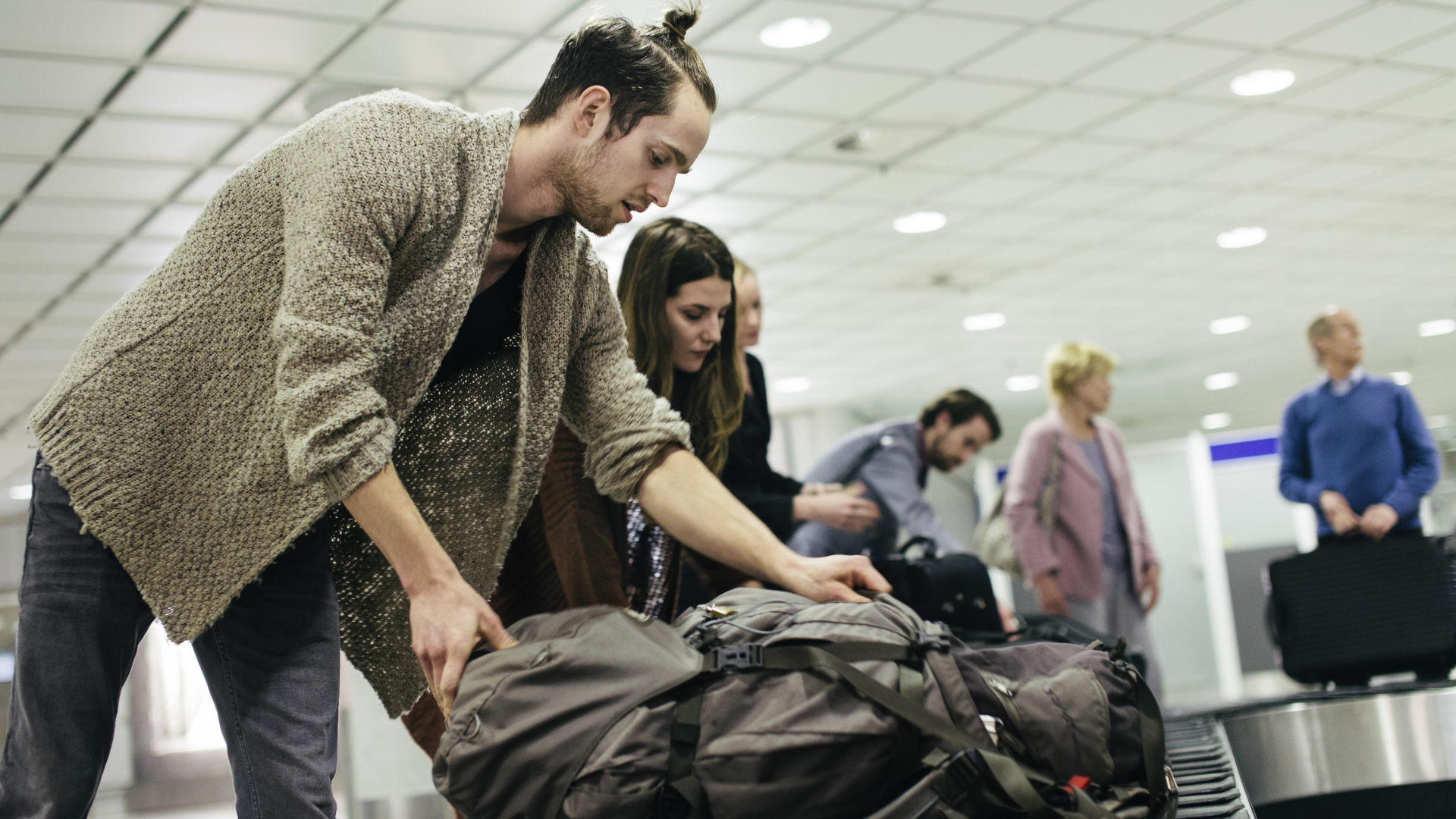
When to buy camping gear
Despite some clear advantages to renting camping gear, there are definitely scenarios when it’s better to own it, for example:
- Frequent use: Renting that six-person tent might make sense if it’s the only time you plan on going camping with a group, but if you love to regularly adventure solo in the backcountry, you’ll want to own a one-person tent.
- Small items: Lots of smaller camping items like camping cutlery and headlamps are low cost to buy and might have multiple uses outside of camping, too (see our guide to the best headlamps for some good options to look out for).
- Personal items: Though camping gear is cleaned between rentals, there may be items that you’d prefer not to share with others, such as a camping pillow and a sleeping bag (though you can get around the latter by investing in a sleeping bag liner).
- Specialized items: There’s generally lots of choice when it comes to renting gear, from basic to more high end items, but if there’s a particular specialized piece of kit that you really need – or want – such as a specific pair of binoculars, you’ll want to do your research and buy it.
Finally, for any gear that you purchase, take good care of it, clean it regularly and make sure to recycle it at the end of its life cycle to keep it out of landfills.
Julia Clarke is a staff writer for Advnture.com and the author of the book Restorative Yoga for Beginners. She loves to explore mountains on foot, bike, skis and belay and then recover on the the yoga mat. Julia graduated with a degree in journalism in 2004 and spent eight years working as a radio presenter in Kansas City, Vermont, Boston and New York City before discovering the joys of the Rocky Mountains. She then detoured west to Colorado and enjoyed 11 years teaching yoga in Vail before returning to her hometown of Glasgow, Scotland in 2020 to focus on family and writing.

